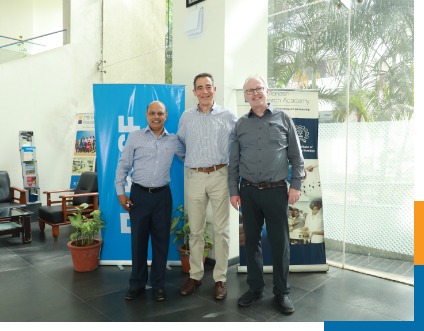
We were elated to host Dr. Detlef Kratz, President of Global Research, BASF along with Dr. Dietmar, Dr. Shilpa, and Dr. Mustaq from BASF Innovation Campus, Mumbai on 31 May. Dr. Kratz delivered an insightful talk and had an interactive session with all the attendees.

We are delighted to announce our partnership with Emerson. The Academy signed an umbrella agreement with them which marks a step towards a sustainable future through technology and innovation.
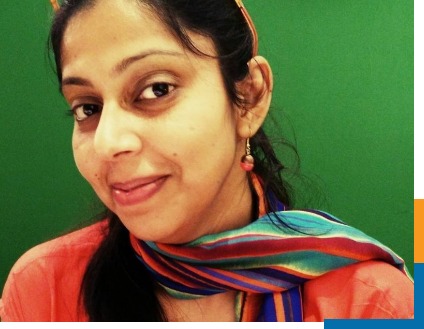
Do read an article by our student, Anusha Gavankar on urbanisation and coastal development. Here is the link: https://www.orfonline.org/expert-speak/urbanisation-and-coastal-development/
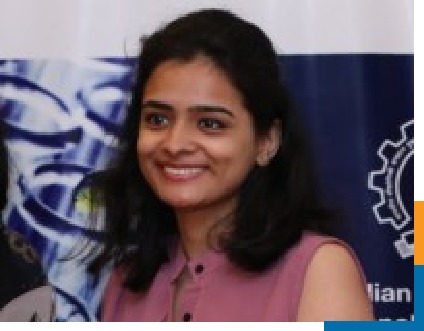
Congratulations to our student Pallavi Goswami and other authors on their paper about how changing climate affects low-flow streamflow events in SE Australia. Here is the link to access the paper: https://agupubs.onlinelibrary.wiley.com/doi/10.1029/2021WR031508
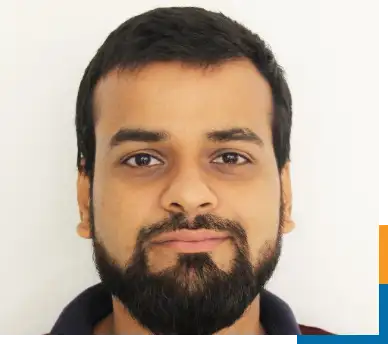
Shihab defended his thesis successfully on 25 February 2022. His thesis title is “A comprehensive value of information framework for quantifying structural health monitoring benefits”. His supervisors are Prof. Siddhartha Ghosh, Prof. Jayadipta Ghosh from IITB and Prof. Colin Caprani from Monash University.
Value of Information (VoI) is a framework based on Bayesian preposterior analysis, that can guide asset owners in quantifying the potential monetary benefits of structural health monitoring techniques. This dissertation proposes a comprehensive VoI framework, that incorporates all the necessary influential parameters and industrial practices of tiered approaches to structural analysis, assessment, and measurement. Global sensitivity analysis of and metamodelling strategies for the VoI framework are proposed. The comprehensive VoI framework is demonstrated in a case study of degrading bridge infrastructure. It is found that the VoI framework is very sensitive to errors and uncertainties, and that PCE metamodelling effectively reduces computational costs.
Shihab is the Academy’s 184th graduate.
We wish Shihab all the best for his future endeavours.
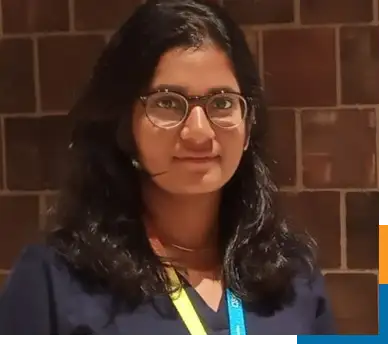
Congratulations to our student, Lekshmi Eswaramoorthy and her research group for the publishing in Journal of Physics D: Applied Physics. Below is a link to the manuscript- Link: https://doi.org/10.1088/1361-6463/ac570e
“Dark excitons do not decay into photons easily — which is a good thing for certain applications such as light storage and quantum information. However, this weak coupling to light also makes it hard to probe these excitons optically”.
In this paper, a versatile means of selectively coupling to dark excitons in two dimensional semiconductors has been presented.
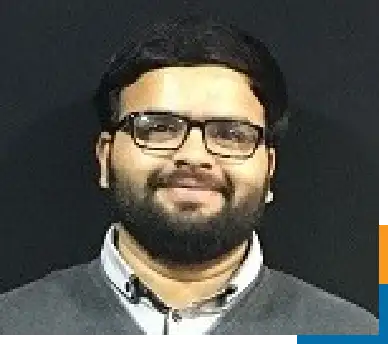
Congratulations to Dr. Anirudh Tagat on successfully defending thesis on 11 February 2022. He is supervised by Prof. Pushpa Trivedi (Retired, IIT Bombay), Prof. Gregory Markowsky (Monash University) and Prof. Mehmet Omen (University of Melbourne).
Anirudh is our 183rd graduate.
He is a Research Author in the Department of Economics at Prayogshala and
the Deputy Director, Behavioural Sciences, BIAS Inc.
Wishing Anirudh good luck for his future!
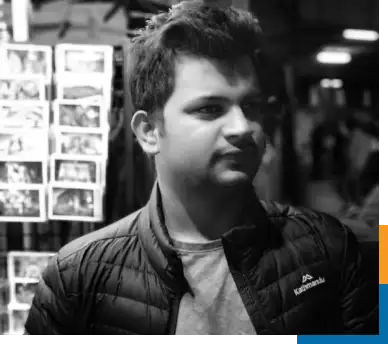
Imaran defended his thesis successfully on 9 February 2022. His thesis is titled “ Influence of particle smoothness and substrate mechanics on the clustering of self-propelled rods”.
Designed and Developed By SRV Media Pvt. Ltd.
© Copyright 2025 by IITB-Monash Research Academy